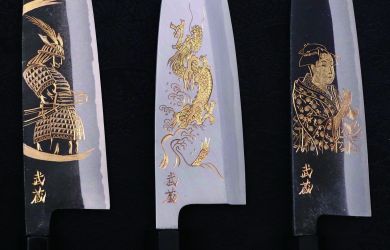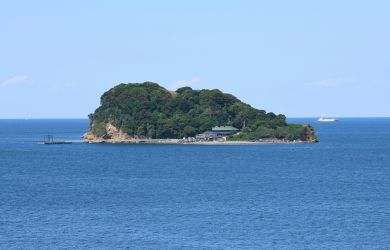
Originally published on metropolis.co.jp on August 2012
MILESTONES

- Shunpei Ueyama, a philosopher and former president of Kyoto University, died earlier this month at the age of 91. According to an obituary, he survived World War II despite being a “member of a human-guided torpedo suicide attack group.”
- In a survey of 358 movie directors, including Martin Scorsese, Woody Allen and Quentin Tarantino, Yasujiro Ozu’s 1958 Tokyo Story was named the greatest film of all time.
- Dynam became the first Japanese company to list its shares exclusively on the Hong Kong Stock Exchange. It also became the first pachinko parlor to go public.
- Vietnam has become the 17th country in the world to sell Pocari Sweat. We can only hope the name translates better into the local language than it does into English.
COMING & GOING
- Princess Mako, the 20-year-old daughter of Prince and Princess Akishino, will take a break from her studies at International Christian University in Tokyo to spend a year abroad at the University of Edinburgh.
- It was reported that Ri Sol-ju, the newly unveiled wife of North Korean leader Kim Jong Un, visited Fukuoka in 2002 to participate in a UN-sponsored arts festival.
- A JAL jet flying from Tokyo to New York was forced to return to Narita—after getting all the way to Alaska, no less—when some whackjob phoned in a bomb threat demanding the release of Aum Shinrikyo cult founder Chizuo Matsumoto.
- Officials in Osaka suspect the same person posted a message on the municipal government website threatening “to indiscriminately run over people with a truck and randomly stab people… before committing suicide.”
WHAT’S THE JAPANESE FOR “ACLU?”
- An advisory panel with the Central Disaster Prevention Council recommended that “the movements and personal rights of the public should be restricted to maintain order in case of a major disaster.”
- Japan’s “vote-value gap”—the discrepancy in the population of representative electoral districts—is getting wider. The biggest gap is between the Chiba No. 4 district (population 602,996) and Kochi No. 3 (242,976).
- Troops from the Ground Self-Defense Forces joined US Marines for exercises on Tinian and Guam. The drills are intended to “improve defense capabilities on remote islands.”
- Scientists at Fujitsu and Nagoya University have teamed up on a system that can automatically detect phone scams. Potential victims will be warned via “a synthesized voice message.”
GOVERNMENT IN ACTION
- The Fair Trade Commission scolded three wholesalers for selling booze below market value to the Aeon supermarket chain.
- The DPJ and LDP both say they want to amend the Industrial Safety and Health Act to include a recommendation that businesses provide smoke-free environments for their employees. The two parties stopped short of making the plan mandatory, though.
- In an effort to “correct the gap between the public and private sectors,” government officials will cut the retirement benefits of civil servants by ¥4 million.
- The upper house of the Diet passed a bill setting forth the terms for municipalities to collect small electronics items for recycling “rare metals and other resources.”
FROM THE BUSINESS PAGES
- Officials at Sumitomo announced a $2 billion deal with a US company to develop an oil field in the Permian Basin in Texas. The area is said to have “the largest proven oil reserves in North America… by far exceeding those of Alaska and the Gulf of Mexico.”
- The company also said it wants to set up a new TV shopping network in Thailand that would offer viewers “jewelry, cosmetics, electric appliances and other high-end products.”
- Mitsubishi says labor unrest at coal mines in Australia is largely to blame for a big drop in its second quarter profits. The company operates seven mines in Australia in a partnership with BHP Billiton.
- Among 47 joint environmental projects to be undertaken by Japan and China are the development of an electric car and the establishment of a “smart city.”
AND THE SURVEY SAYS…
- According to the science ministry’s latest survey of earthquake readiness, 84.8 percent of elementary- and middle-school buildings around the country would be able to withstand a quake measuring 6 on the Japanese scale of seismic intensity. That’s up 4.5 percentage points from last year’s survey but still leaves some 3,500 schools at risk of collapse in a major quake.
- A US-based research firm predicts that China will overtake Japan as the world’s second largest market for ad spending (after the United States), and that it will become the second largest internet market the following year.
- Analysts say the rise in popularity of carbonated drinks aimed at adults—like Kirin Mets Cola, Orangina and Schweppes British Lemon Tonic—is due to “health-conscious men and women in their 30s and 40s who are longing for the good old days of their childhood.”
- The Kashima Antlers defeated Universidad de Chile in a penalty shootout in Ibaraki to win the Suruga Bank Championship. The annual contest matches the J-League champion against the winners of the Copa Sudamericana.
SUMMERTIME BLUES
- The NPA says there’s been a 25 percent jump in the number of fatal accidents on expressways over the past year. This led an official to conclude—quite reasonably, we’d say—that “drivers have become less cautious about high-speed driving.”
- A 31-year-old Chinese man drowned while swimming in Chuzenji Lake in Nikko. The lake is a popular sightseeing spot, but swimming is prohibited.
- Toyota was forced to recall 780,000 vehicles “to fix a defect that could allow rust to form in the suspension to the point where parts break off.” Yeah, you might want to take a look at that.
- Bottom Story of the Week: “Japanese Ambassador Sings for US Governor” (via AP)
Compiled from reports by AP, Japan Today, The Japan Times, Jiji, The Tokyo Reporter, Japan Probe, The Mainichi, Daily Yomiuri, AFP, Reuters and Kyodo





